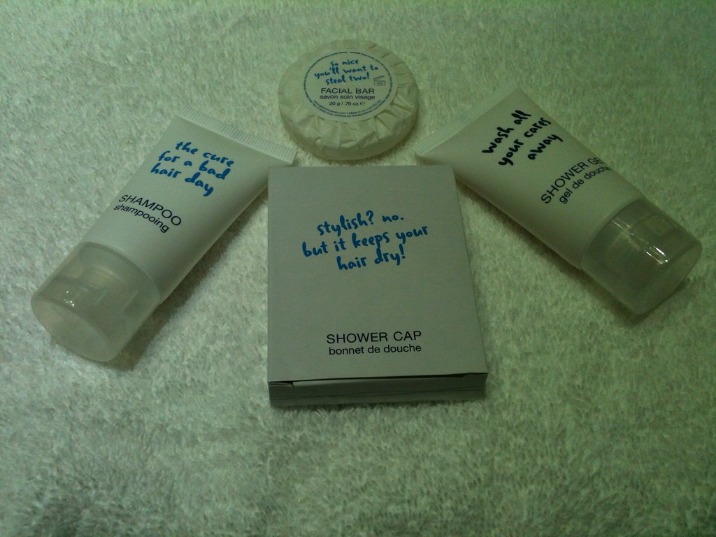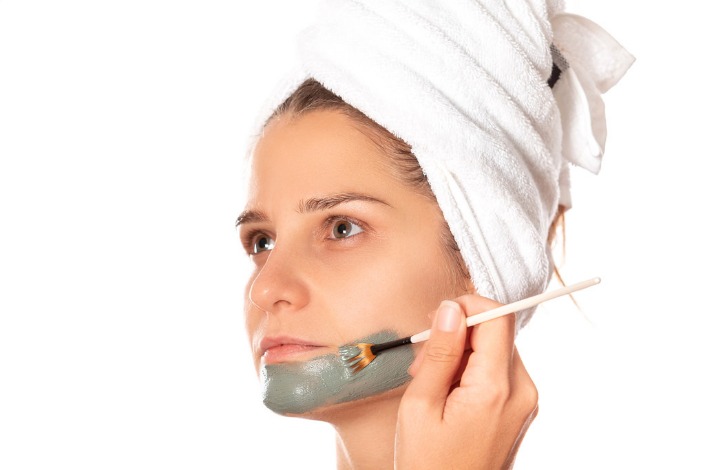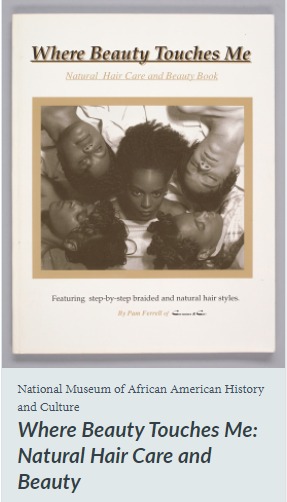Understanding Dry Hair
Understanding dry hair is essential for developing effective hair care routines that restore moisture and vitality. Dry hair often appears dull, brittle, and prone to breakage, resulting from factors such as environmental exposure, styling habits, and underlying health conditions. By recognizing the causes and symptoms of dry hair, you can choose appropriate products and treatments to nourish and revitalize your hair, ensuring it remains healthy and vibrant.
Causes of Dry Hair
Understanding dry hair is essential for effective care and management. Dry hair appears dull, brittle, and rough, often leading to breakage and split ends. It lacks the natural moisture and oils that keep hair healthy and shiny.
The causes of dry hair can vary and are often related to external and internal factors. Overwashing hair with harsh shampoos strips away natural oils, leaving hair dry and fragile. Environmental factors such as exposure to sun, wind, and dry air can dehydrate hair fibers. Heat styling tools like straighteners, curling irons, and blow dryers can cause significant moisture loss. Chemical treatments like coloring, perming, and relaxing can weaken hair and strip away natural moisture. Additionally, poor nutrition, dehydration, and health conditions such as thyroid imbalances can contribute to dry hair. Understanding these causes helps in adopting appropriate hair care practices to maintain moisture and health.
Types of Dry Hair
Understanding dry hair is essential for maintaining healthy and manageable locks. Dry hair occurs when the scalp produces insufficient natural oils or when external factors damage the hair’s moisture balance. Recognizing different types of dry hair helps in selecting appropriate care routines and products.
Types of dry hair include:
- Genetic Dry Hair: Naturally coarse and lacking moisture due to hereditary factors.
- Environmental Dry Hair: Caused by exposure to sun, wind, pollution, or dry air that strips moisture from hair strands.
- Heat-Damaged Dry Hair: Resulting from frequent use of hot tools like straighteners, curling irons, and blow dryers without protection.
- Chemical-Damaged Dry Hair: Arising from coloring, bleaching, or chemical treatments that weaken hair structure.
Effective Dry Hair Care Routines
Having dry hair can be challenging, but with the right care routines, you can restore its health and shine. Effective dry hair care involves gentle cleansing, nourishing treatments, and protective practices that help replenish lost moisture and prevent further damage. Adopting a consistent routine tailored to dry hair needs will lead to softer, smoother, and more manageable locks. Whether you’re dealing with brittle strands or dullness, understanding essential tips can make a noticeable difference in your hair’s condition.
Washing Guidelines
Maintaining healthy dry hair requires a gentle and consistent care routine that replenishes moisture while minimizing damage. Using the right washing guidelines is essential to keep your hair hydrated and strong. Always use lukewarm water to wash your hair, as hot water can strip away natural oils, making your hair drier. Choose sulfate-free shampoos formulated for dry or damaged hair to cleanse without stripping essential moisture. Limit washing to two or three times a week to prevent over-drying. When conditioning, apply a nourishing conditioner from mid-length to ends, and leave it on for a few minutes to allow deep penetration. Incorporate weekly treatments like hair masks or oil-based deep conditioners to restore moisture and improve elasticity. Gently pat your hair dry with a soft towel rather than rubbing vigorously, and avoid using excessive heat styling tools. Emphasizing gentle handling, proper cleansing, and targeted treatments can significantly improve the health and appearance of dry hair.
Choosing the Right Shampoo and Conditioner
Proper dry hair care begins with selecting the right products and establishing a consistent routine that nourishes and restores moisture to your hair. Using the appropriate shampoo and conditioner is essential to keep your hair healthy, shiny, and manageable.
- Choose a sulfate-free shampoo that gently cleanses without stripping away natural oils.
- Opt for hydrating conditioners rich in ingredients like shea butter, argan oil, or glycerin to provide deep moisture.
- Wash your hair in lukewarm water to prevent further dryness and avoid hot water which can damage the hair cuticle.
- Apply conditioner mainly to the ends of your hair to lock in moisture and reduce split ends.
- Use a leave-in conditioner or deep conditioning treatment once a week for extra nourishment.
- Avoid excessive washing; 2-3 times a week is usually sufficient for dry hair to maintain its natural oils.
- Pat your hair dry gently with a towel instead of rubbing vigorously to prevent hair breakage.
- Incorporate hair oils or serums into your routine to add an extra layer of moisture and shine.
Frequency of Hair Washing
Maintaining healthy dry hair requires a gentle and consistent hair care routine tailored to restore moisture and prevent further damage. Proper cleansing, conditioning, and styling practices are essential for nourishing dry hair effectively.
For dry hair, washing frequency should generally be limited to 1-2 times a week to avoid stripping natural oils that keep hair moisturized. Using a sulfate-free, hydrating shampoo helps cleanse without drying out the hair further. Applying a deep conditioning treatment or hair mask once a week can provide added moisture and repair damage.
It’s important to avoid hot water during washing, as it can strip away natural oils, and instead opt for lukewarm water. After washing, applying a leave-in conditioner or hair oil can help lock in moisture and improve manageability. Regularly trimming split ends and minimizing heat styling tools also contribute to healthier, more hydrated hair.
Overall, a consistent, gentle hair care routine with appropriate washing frequency and moisturizing products will help restore dry hair’s vitality and shine over time.
Deep Conditioning and Treatments
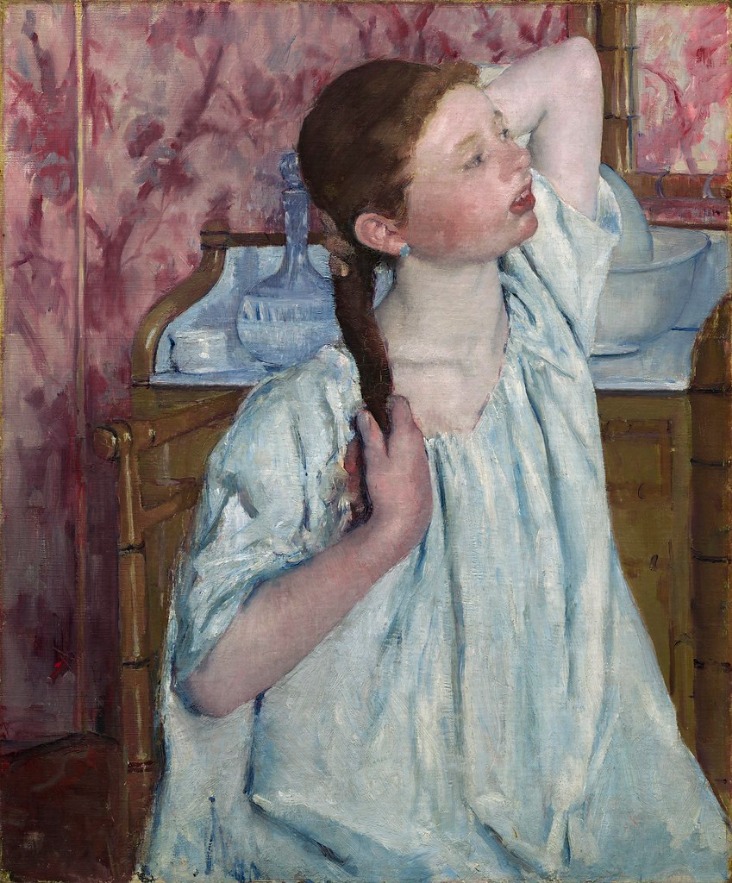
Deep conditioning and treatments are essential solutions for restoring moisture, strength, and shine to dry, brittle hair. By penetrating the hair shaft, these treatments provide essential nutrients and hydration that regular conditioners can’t offer, making them a vital part of dry hair care routines. Incorporating these therapies can help revitalize dull, damaged hair and promote healthier, more manageable strands.
Use of Hair Masks
Deep conditioning and treatments are essential components of dry hair care, providing the necessary moisture and nutrients to restore softness and shine. Hair masks, in particular, are highly effective in nourishing parched strands by penetrating deeply into the hair shaft, repairing damage, and smoothening rough textures. Regular use of hydrating masks can improve overall hair health, reduce breakage, and enhance manageability. Choosing the right mask tailored to dry and damaged hair ensures maximum moisture retention and revitalization, leaving hair looking healthier and more vibrant.
Oil Treatments
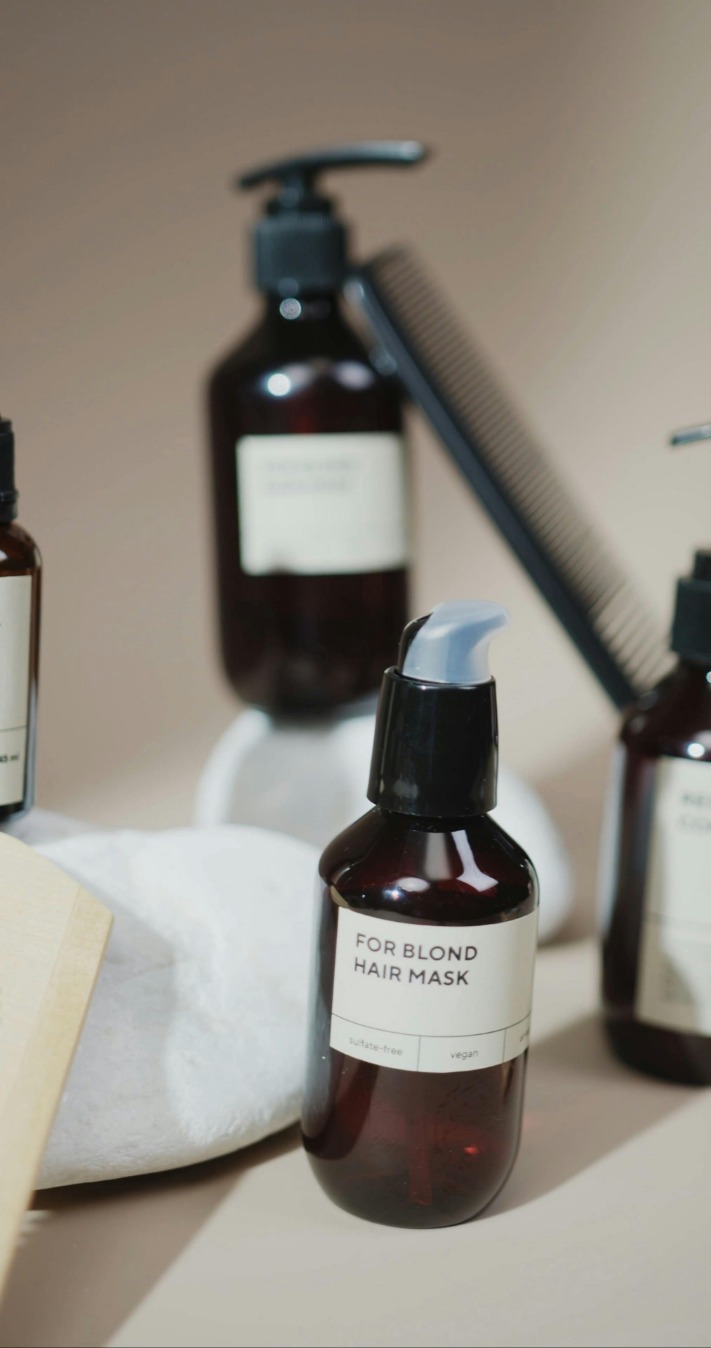
Deep conditioning and oil treatments are essential components of caring for dry hair, providing deep nourishment and hydration to restore softness and manageability. These treatments help repairs damage, lock in moisture, and improve overall hair health by penetrating the hair shaft with nutrient-rich ingredients. Regular use of deep conditioners can prevent breakage and reduce frizz, making hair look shinier and smoother.
Oil treatments are particularly effective for dry hair because they penetrate the scalp and strands, delivering essential fatty acids and vitamins that strengthen and moisturize from within. Natural oils like coconut, argan, jojoba, and castor oil are popular choices, offering intense hydration and added shine. Applying oil treatments regularly, either as a pre-shampoo mask or leave-in conditioner, can significantly enhance the moisture content of dry, brittle hair.
DIY Natural Remedies
Deep conditioning and treatments are essential for dry hair to restore moisture, improve elasticity, and enhance overall health. These intensive therapies penetrate the hair shaft, providing nourishment and repairing damage caused by environmental factors, heat styling, and chemical treatments. Incorporating regular deep conditioning into your hair care routine can make a noticeable difference in the texture and appearance of dry hair.
DIY natural remedies are an excellent, cost-effective way to hydrate and revitalize dry locks. Ingredients such as coconut oil, honey, avocado, and olive oil are rich in nutrients and moisturizing properties. For instance, a simple treatment can be made by mixing mashed avocado with a tablespoon of honey and applying it to damp hair, leaving it on for 30 minutes before rinsing. This helps to lock in moisture and leave hair soft and shiny.
Another popular natural remedy involves using coconut oil as a deep conditioner. Warm a few tablespoons of coconut oil and massage it into your scalp and hair, focusing on the ends. Cover your hair with a shower cap and leave it overnight for an intensive treatment. Wash out thoroughly in the morning for smooth, hydrated hair. Regular use of these DIY treatments can significantly improve dryness and promote healthier hair over time.
Protective Measures for Dry Hair
Protective measures for dry hair are essential to maintain its health, shine, and moisture. By adopting the right routine and using suitable products, you can effectively combat dryness and prevent further damage. Understanding how to shield your hair from environmental factors and harsh styling practices is key to achieving soft, manageable strands.
Heat Protection
Protective measures and heat protection are essential for maintaining healthy, dry hair and preventing further damage caused by styling tools. Before using any heat styling devices, it is important to apply a heat protectant spray or serum to create a barrier that minimizes moisture loss and reduces the risk of breakage. Always set your styling tools to the lowest effective temperature to avoid unnecessary heat exposure. Additionally, limit the frequency of heat styling to allow your hair to recover and retain its natural moisture. Using natural oils like argan or coconut oil can also provide a protective layer, helping to shield your hair from heat and environmental stressors. Regular deep conditioning treatments further strengthen the hair shaft, making your hair more resilient against heat damage. By adopting these measures, you can help preserve the moisture and health of your dry hair while enjoying styling flexibility.
Sun and environmental shielding
Protective measures for dry hair are essential to maintain moisture and prevent damage caused by sun and environmental factors. Using broad-spectrum sunscreens or hair products with UV filters can shield hair from harmful ultraviolet rays. Wearing hats, scarves, or wide-brimmed hats when outdoors provides a physical barrier against sun exposure. It’s also beneficial to avoid prolonged exposure to harsh weather conditions, such as wind, pollution, and extreme cold, which can further dry out the hair. Applying deep conditioning treatments regularly helps strengthen the hair shaft and restore moisture. Additionally, using gentle, sulfate-free shampoos and hydrating hair serums can protect the hair from environmental stressors, ensuring it stays healthy, shiny, and less prone to dryness.
Gentle Detangling Techniques
Protective measures for dry hair are essential to maintain its health and prevent further damage. Using a deep conditioning treatment regularly helps hydrate and nourish dry strands, restoring their softness and shine. Avoiding excessive heat styling and harsh chemical treatments can also prevent moisture loss and breakage. When washing, opt for sulfate-free shampoos and lukewarm water to reduce dryness. Additionally, applying a leave-in conditioner or natural oils like argan or coconut oil can provide an extra layer of moisture and protection throughout the day.
Gentle detangling techniques are crucial for dry hair to minimize breakage and damage. Always start detangling with a wide-tooth comb or your fingers, gently working from the ends towards the roots. It’s best to do this when the hair is damp or slightly detangled after washing, using a detangling spray if necessary. Avoid pulling or tugging vigorously, and never detangle dry hair aggressively, as it is more prone to breakage. Patience and softness are key to maintaining the integrity of dry, delicate strands while detangling.
Diet and Lifestyle for Healthy Hair
Maintaining healthy hair begins with a balanced diet and a mindful lifestyle. Proper nutrition provides essential nutrients that strengthen hair from within, while healthy habits support the overall condition of your hair. When it comes to caring for dry hair, incorporating the right foods and routines can make a significant difference in restoring moisture, shine, and vitality. A holistic approach to diet and lifestyle is key to achieving beautiful, healthy hair.
Nutritional Tips
Maintaining healthy, dry hair requires a balanced approach to diet and lifestyle. Proper nutrition plays a crucial role in nourishing hair from within, promoting moisture retention and overall strength. Incorporate foods rich in vitamins A, C, D, and E, as well as biotin, zinc, and omega-3 fatty acids, to support scalp health and hair hydration.
Staying well-hydrated by drinking plenty of water daily helps prevent dryness and keeps hair moisturized. Avoid excessive heat styling, harsh chemical treatments, and frequent washing with harsh shampoos, as these can strip natural oils and worsen dryness. Embracing gentle hair care routines, such as using nourishing oils like argan or coconut oil, can provide extra moisture and protect hair from environmental damage.
Additionally, managing stress through activities like exercise, yoga, or meditation contributes to healthier hair, as stress can negatively impact scalp health. Ensuring adequate sleep and avoiding smoking also support overall scalp and hair health. By combining nutritious foods with mindful hair care habits, you can effectively combat dryness and promote soft, shiny hair.
Hydration Importance
Maintaining healthy hair, especially dry hair, begins with a balanced diet and mindful lifestyle choices. Consuming a variety of vitamins and minerals, such as biotin, vitamin E, and omega-3 fatty acids, supports hair strength and moisture. Staying hydrated is crucial, as water helps to keep hair strands moisturized from the inside out, reducing dryness and brittleness. Incorporating plenty of water into your daily routine along with nutrient-rich foods can significantly improve hair texture and overall health. Additionally, avoiding excessive heat styling, reducing stress, and using gentle hair care products can further protect dry hair and promote its natural shine and vitality.
Avoiding Harmful Habits
Maintaining healthy hair, especially when dealing with dryness, requires a balanced diet and mindful lifestyle choices. Consuming nutrient-rich foods such as fruits, vegetables, nuts, and lean proteins provides essential vitamins and minerals like biotin, zinc, and vitamins A, C, and E, which promote moisture retention and scalp health. Staying well-hydrated by drinking plenty of water helps to keep hair moisturized from within. Avoiding harmful habits such as smoking, excessive alcohol consumption, and stress can significantly improve hair health, as these factors can weaken hair follicles and lead to dryness and breakage. Regularly reducing the use of harsh chemical treatments and heat styling tools also prevents further damage. Adopting a healthy lifestyle and proper nutrition is key to restoring moisture and vitality to dry hair, ensuring it remains shiny, soft, and resilient.
Professional Hair Care Options
Healthy, moisturized hair is essential for a vibrant and confident look, especially when dealing with dry hair. There are numerous professional hair care options available to restore moisture, improve texture, and enhance overall hair health. From specialized shampoos and conditioners to deep conditioning treatments and personalized hair consultations, discovering the right care routine can transform dry, brittle hair into soft, glossy locks.
Salon Treatments
Maintaining dry hair requires specialized care to restore moisture and improve its overall health. Professional hair care options and salon treatments offer effective solutions for dry, damaged hair, providing deep nourishment and hydration. Treatments such as deep conditioning masks, keratin smoothening, and hot oil treatments are designed to repair dry strands and add a healthy shine. Styling professionals often recommend scheduling regular salon visits for tailored therapies that target dryness, split ends, and breakage. Additionally, gloss treatments and moisture infusion therapies can restore softness and manageability, giving dry hair a revitalized, salon-finished look. Proper professional care not only enhances the appearance but also reinforces the structural integrity of fragile hair, helping maintain moisture balance and preventing further damage.
Consulting Hair Specialists
Maintaining healthy, hydrated hair is essential for those dealing with dry or brittle hair. Consulting hair specialists can provide personalized advice and treatment options to restore moisture and shine to your hair. Professional hair care options often include tailored treatments and product recommendations to improve hair health effectively.
- Deep conditioning treatments that replenish moisture and repair damage
- Use of hydrating shampoos and conditioners formulated for dry hair
- Weekly hair masks infused with nourishing ingredients like argan oil, keratin, or Shea butter
- Avoiding excessive heat styling to prevent further dryness and damage
- Regular trims to remove split ends and promote healthier growth
- Consulting hair specialists for personalized scalp and hair assessments
- Incorporating leave-in conditioners and hair oils to lock in moisture throughout the day
- Sticking to a balanced diet rich in vitamins and minerals that support hair health
- Schedule professional scalp treatments for deep cleansing and nourishment
- Follow expert advice for suitable at-home hair care routines to combat dryness
- Seek seasonal treatments recommended by specialists to protect hair from environmental stressors
Preventative Tips to Maintain Moisture
Maintaining moisture is essential for healthy, vibrant hair, especially when dealing with dry hair concerns. Proper preventative tips can help restore and preserve natural hydration, preventing damage and enhancing shine. By adopting simple daily habits and hair care practices, you can keep your hair moisturized, soft, and manageable throughout the year.
Proper Hair Drying Techniques
Maintaining moisture in your hair is essential for healthy, shiny locks. To prevent dryness, use moisturizing shampoos and conditioners formulated for dry hair, and incorporate weekly deep conditioning treatments into your routine. Avoid washing your hair with very hot water, as it can strip natural oils, and instead opt for lukewarm water for cleansing.
Proper hair drying techniques can significantly reduce damage and moisture loss. Gently pat your hair with a soft towel to remove excess water instead of rubbing vigorously. When using a blow dryer, keep it on a low or cool setting and hold it at a distance to prevent heat from harming your hair. Allow your hair to air dry partially before using styling tools, and consider applying heat protectant sprays prior to heat styling to preserve moisture and health.
Regular Trims
Maintaining moisture and getting regular trims are essential steps in caring for dry hair. To keep your hair hydrated, use deep conditioning treatments and leave-in conditioners regularly to replenish moisture and prevent dryness. Avoid excessive heat styling and harsh chemical treatments, which can strip natural oils and worsen dryness. Incorporate nourishing oils like argan or coconut oil into your hair care routine to provide extra hydration and shine.
Regular trims help to remove split ends and prevent further fraying, which can make your hair look dull and brittle. Aim to get a trim every six to eight weeks to promote healthier hair growth and maintain a neat appearance. Combined with proper hydration and care, these tips can significantly improve the health and look of dry hair, keeping it soft, smooth, and manageable.
